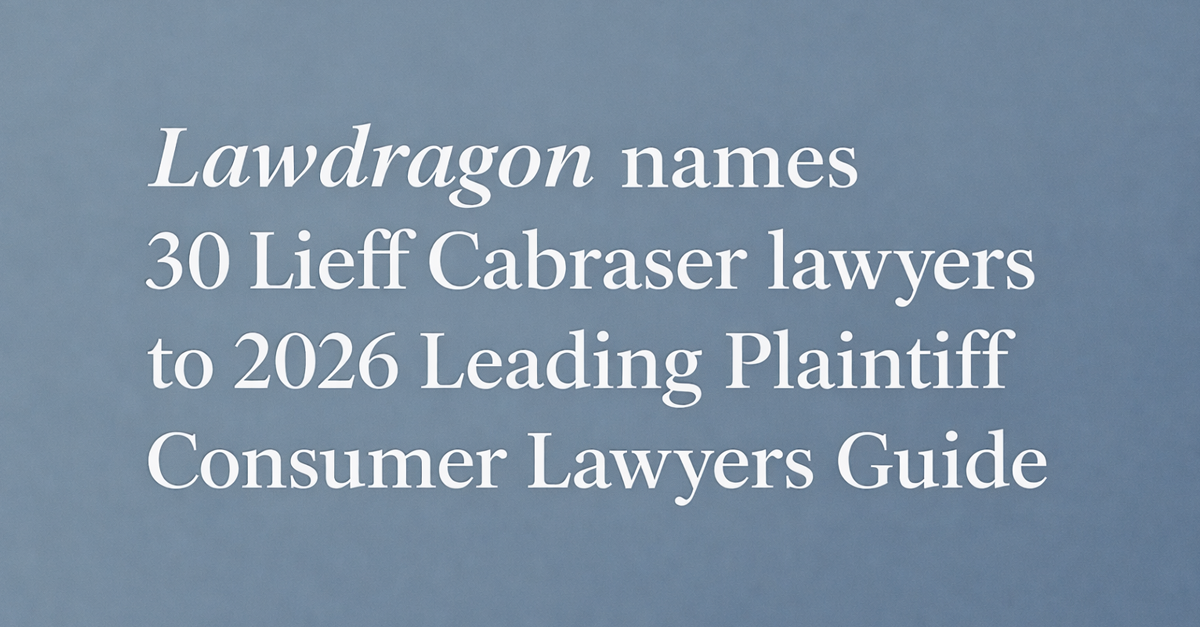Class Action Lawyer: Answers to Questions About Class Action Lawsuits
- What is a class action?
- What are some types of class action lawsuits?
- What are the public policy reasons supporting class action suits?
What is a class action lawsuit?
A class action is a type of lawsuit in which one or several persons sue on behalf of a larger group of persons, referred to as “the class.”
While the subject matter of class action lawsuits can vary widely, two factors are almost always present for every class action:
- the issues in dispute are common to all members of the class, and
- the persons affected are so numerous as to make it impracticable to bring them all before the court.
Depending upon the type of class action, resolution of the lawsuit binds all members of the class certified by the Court. Under federal law, the rules governing class actions are found in Federal Rule of Civil Procedure 23.
Many of our cases started as the result of complaints by one or a handful of persons. If you have been harmed by a fraud, defective product, illegal conduct, or a deceptive practice, please feel free to contact us.
What are some types of class actions?
Examples of class actions include claims by:
-
- employees subjected to a pattern or practice of racial, age, or gender discrimination by their corporate employer;
- home or business owners affected by an environmental disaster such as the BP Gulf of Mexico oil spill;
- consumers who purchased the same defective product or who were deceived by the same false advertising or manipulative business practices;
- patients prescribed a prescription drug with dangerous side effects that the manufacturer was aware of and failed to disclose;
- consumers and small business owners who paid an inflated price for a product after a group of corporations conspired to fix prices;
- investors who lost their savings due to securities fraud committed by senior executives of a publicly traded company; and
- individuals whose sensitive, private communications were recorded by a corporation without their knowledge or authorization.
What are the public policy reasons supporting class action suits?
Class action lawsuits are designed to advance several important public policy goals. A class action is often the sole means of enabling persons, even those with serious injuries, to remedy injustices committed by powerful, multi-million dollar corporations and institutions. As stated by former United States Supreme Court Justice William O. Douglas, “The class action is one of the few legal remedies the small claimant has against those who command the status quo.”
In other situations, each person within a large group may have suffered only limited damages and the cost of individual lawsuits would be far greater than the value of each claim. The total damages, however, to the class could be quite large. The wrongdoer would have the incentive to continue its fraudulent conduct but for a class action.
“In the age of mass production and mass marketing, class actions are necessary to allow individuals to take on multi-national corporations, where expenses of litigating would be otherwise prohibitive. The class becomes a de facto corporation for the purposes of suit, allowing individuals to band together and be equally matched against corporate defendants,” Lieff Cabraser partner and class action attorney Elizabeth Cabraser has observed.
Finally, where the defendant has engaged in a pattern of wrongdoing, a class action can provide an effective remedy for the group without incurring the costs of thousands of separate lawsuits and risking inconsistent decisions by the courts.
This summary of class actions is intended to give lay persons a basic overview to class actions. It is for informational purposes only and does not constitute specific legal advice. Nor is this summary intended to create, and receipt does not create, an attorney-client relationship. Please read our disclaimer.
















